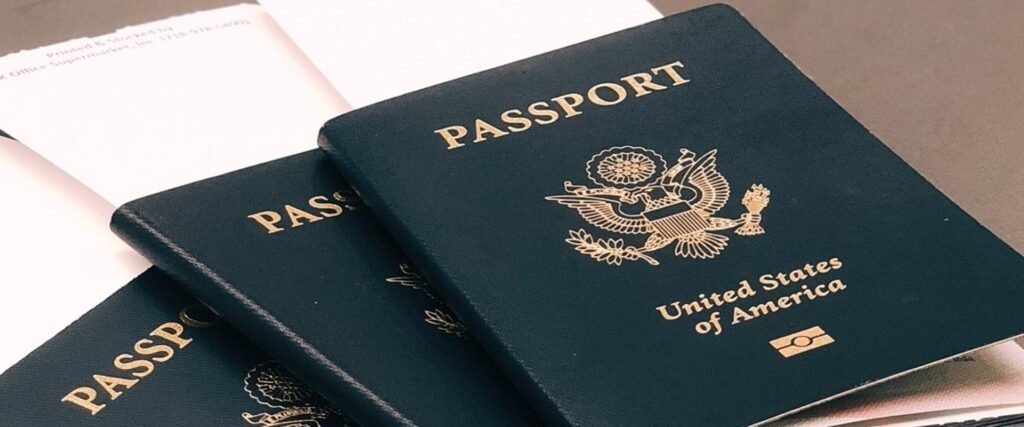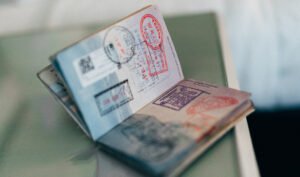 Why Travel Documents Are Crucial
Why Travel Documents Are Crucial
The Importance of Carrying the Right Documents
Travel documents are your lifeline when you’re on the road. Whether you’re a budget traveler, a digital nomad, or a family on vacation, having the right papers can make or break your trip. Think of them as your ticket to smooth travels—they confirm your identity, your travel plans, and your legal right to enter a destination. Without them, you could face delays, fines, or even denied entry.
For instance, your passport is your most essential document. It’s not just an ID; it’s your access to international travel. Similarly, visas, travel insurance, and even proof of vaccinations (where required) ensure you meet the legal and health requirements of your destination. Carrying these documents not only keeps you compliant but also brings peace of mind, knowing you’re prepared for whatever comes your way.
How Travel Documents Can Save You from Unexpected Issues
Travel is full of surprises, and not all of them are pleasant. Imagine being stuck at a border because you forgot your visa or missing a flight because you misplaced your boarding pass. Travel documents act as your safety net, helping you navigate unexpected challenges with ease.
- Flight Delays or Cancellations: Having your ticket and booking details handy can speed up rebooking processes.
- Medical Emergencies: Travel insurance documents ensure you get the care you need without financial stress.
- Lost Passport: Carrying a photocopy or digital backup can help you prove your identity to authorities and expedite replacement.
For first-time travelers or those heading to less familiar destinations, these documents become even more critical. They’re not just formalities—they’re tools that empower you to handle the unexpected confidently.
Tailoring Your Documents to Your Travel Style
Different travelers have different needs. Backpackers might prioritize light, easily accessible documents, while families might need extra paperwork like birth certificates or consent letters for minors. Digital nomads, on the other hand, often require work visas or proof of income for extended stays. Here’s a quick guide tailored to common travel styles:
| Traveler Type | Essential Documents |
|---|---|
| Budget Travelers | Passport, visa, budget tracking app, travel insurance |
| Digital Nomads | Passport, work visa, proof of income, local SIM card |
| Families | Passports, birth certificates, child travel consent, family travel insurance |
| Adventurers | Passport, permits for outdoor activities, emergency contacts |
By understanding what you need, you can pack smarter and travel with confidence, knowing you’re ready for anything.
Primary Travel Documents You Must Have
Passport and Visa Requirements
Your passport is your golden ticket to international travel. Always ensure it’s valid for at least six months beyond your travel dates, as many countries enforce this requirement. For those who love spontaneity, keep your passport updated to avoid last-minute stress.
Visa requirements vary widely depending on your destination and nationality. Some countries offer visa-free entry or visas on arrival, while others require advance applications. Pro tip: Use official government websites or trusted visa services to confirm requirements. Applying early can save you from unexpected delays or fees.
National ID Card for Local Travel
If you’re exploring your own country or traveling domestically, a national ID card is often all you need. It’s a lightweight alternative to carrying your passport and is essential for identification in hotels, airports, or other checkpoints. For digital nomads and budget travelers, it’s a convenient way to stay mobile without extra paperwork.
Keep Digital Copies
In today’s digital age, having scanned copies of your documents is a lifesaver. Store them securely in your email or cloud storage, and keep a backup on your phone. If your physical documents are lost or stolen, these digital copies can help expedite replacements or prove your identity.
For frequent travelers, consider using apps that securely store passport, visa, and ID information. Remember: Always double-check that your documents match the entry requirements of your destination.
Secondary Documents for Backup and Safety
When it comes to traveling, your primary travel documents—passport, tickets, and ID—are non-negotiable. But what happens if you lose them? That’s where secondary documents come in. Having backups can save you from a lot of stress and hassle. Here’s how to prepare for the unexpected.
Photocopies and Digital Backups
Always carry photocopies of your essential documents, including your passport, visa, driver’s license, and travel insurance. These can be a lifesaver if your originals are lost or stolen. Keep a set of copies in your luggage and leave another set with a trusted friend or family member back home.
For digital nomads and frequent travelers, digital backups are a game-changer. Scan your documents and save them in secure cloud storage like Google Drive or Dropbox. Password-protect these files for added security. You can also email the scans to yourself or store them on a secure USB drive. This way, you can access them from anywhere, even if your physical copies are gone.
Emergency Contact Information
In case of emergencies, having a list of key contacts can make all the difference. Create a document that includes:
- Your local emergency numbers (e.g., police, ambulance, fire department)
- Your country’s embassy or consulate contact details
- Your travel insurance provider’s 24/7 helpline
- Your emergency contact back home
Write this information down and keep it in your wallet or bag. You can also save it as a note on your phone or in your email. For families traveling with children, consider giving each child a copy of this information, along with your hotel address and phone number.
By taking these small but crucial steps, you’re not just preparing for the worst—you’re ensuring peace of mind so you can focus on enjoying your journey. Safe travels!
Additional Documents for Specific Travelers
Travel Insurance for Adventurers
For adventurers and ecotourists, travel insurance isn’t just a nice-to-have—it’s essential. Whether you’re hiking remote trails, diving in hidden lagoons, or scaling mountains, unexpected mishaps can happen. Look for policies that cover emergency medical expenses, evacuation, and trip cancellations. If you’re carrying expensive gear like cameras or hiking equipment, ensure your policy includes travel gear protection. Many budget-friendly options cater specifically to adventurers, so compare plans to find one that fits your needs.
- Check for adventure sports coverage: Not all policies include activities like rock climbing or scuba diving.
- Consider location-specific risks: If you’re traveling to areas with limited medical facilities, evacuation coverage is crucial.
- Read the fine print: Some policies exclude certain destinations or activities, so double-check before you buy.
Parental Consent Forms for Families
Traveling with children? A parental consent form can save you from potential headaches, especially if you’re not traveling with both parents or legal guardians. This document proves that you have permission to take the child abroad and can be required at border crossings or when booking flights. It’s also a good idea to carry a copy of the child’s birth certificate in case you need to verify their identity or age.
Here’s what you should include in the consent form:
- Names and contact details: Include the names of both parents or guardians, the child, and emergency contacts.
- Travel dates and destinations: Clearly state where and when you’ll be traveling.
- Notarization: In some countries, the form must be notarized to be considered valid. Check the requirements of your destination beforehand.
By preparing these documents in advance, you can ensure a smoother journey for your family and avoid unexpected delays or complications.
Keeping Your Documents Organized and Secure
Best Travel Wallets and Organizers
When it comes to traveling, keeping your essential documents safe and easily accessible is a game-changer. Travel wallets and organizers are your best bet for staying organized on the go. Look for options with multiple compartments, RFID-blocking technology, and durable materials. Here are a few favorites:
- RFID-blocking wallets: Protects your credit cards and passports from digital theft.
- Zippered organizers: Keeps everything in one place, from tickets to currency.
- Waterproof pouches: Ideal for adventurers who might encounter rain or water activities.
For budget travelers, a simple zippered pouch with divided sections can work wonders—just make sure it’s lightweight and easy to carry.
Digital Tools for Document Management
In today’s digital age, managing your travel documents electronically can save you time and stress. Whether you’re a digital nomad or a first-time traveler, these tools are lifesavers:
- Google Drive or Dropbox: Store digital copies of your passport, tickets, and itineraries in the cloud for easy access from anywhere.
- Pass2Go: A mobile app that securely stores all your travel documents and even works offline.
- TravelBank: Combines expense tracking with document storage, perfect for freelancers and digital nomads.
Pro tip: Always have a backup of your documents—both physical and digital. Email a copy to yourself or share it with a trusted friend or family member for added security.
Tips for Keeping Documents Secure
Here are some practical steps to ensure your documents stay safe during your travels:
- Use a hidden pocket or money belt for passports and cash.
- Avoid carrying all your important documents in one place—spread them out between your luggage and carry-on.
- Keep a checklist of your documents and double-check before leaving your accommodation.
Remember, a little preparation goes a long way in ensuring a smooth and stress-free trip!
Pro Tips for First-Time and Solo Travelers
What to Do If Documents Are Lost
Losing important documents while traveling can feel like a nightmare, but staying calm and knowing the right steps can make all the difference. First, report the loss immediately to local authorities and your country’s embassy or consulate. They can assist with emergency replacements like passports or visas. Keep digital copies of all essential documents—passports, visas, IDs, and travel insurance—saved in a secure cloud service or emailed to yourself. This makes it easier to provide proof of identity and expedite the process. Additionally, carry a physical backup of key documents in a separate bag or with a trusted travel companion.
Safety Tips for Document Handling
Handling your travel documents securely is crucial, especially for solo travelers. Here are some practical tips to keep everything safe:
- Use a travel wallet or RFID-blocking pouch to protect your documents from theft or digital scanning.
- Keep your passport and other essentials in a locked compartment in your accommodation, and only carry what you need for the day.
- Make photocopies of your passport’s main page and keep them in different bags. This can be a lifesaver if the original is lost or stolen.
- Always have a list of emergency contacts, including your country’s embassy details, in case of unexpected situations.
By staying organized and proactive, you can minimize risks and enjoy your travels with greater peace of mind.
Final Thoughts and Preparation Checklist
Traveling, whether for work, leisure, or adventure, is one of life’s greatest joys. But to make the most of your journey, proper preparation is key. Here’s how to ensure you’re ready for whatever comes your way:
Review Your Documents Before Departure
Before you step out the door, take a moment to double-check all your essential travel documents. This includes:
- Passport and visas: Ensure your passport is valid for at least six months and that you have the necessary visas for your destination.
- Travel insurance: Confirm your policy covers your trip and activities.
- Flight and accommodation details: Print or save digital copies of your bookings.
- Emergency contacts: Keep a list of important numbers, such as your embassy or consulate, and share them with someone back home.
A well-organized travel folder—physical or digital—can save you from unnecessary stress. Remember, it’s always better to be over-prepared than caught off guard.
Stay Calm and Confident While Traveling
Travel can be unpredictable, but staying calm and confident will help you navigate any situation. Here’s how:
- Trust your preparation: Knowing you’ve done your homework will give you peace of mind.
- Embrace flexibility: Delays, changes, or surprises can lead to unexpected adventures.
- Stay positive: A good attitude can turn even the toughest travel day into a memorable story.
Whether you’re a seasoned traveler or heading out for the first time, confidence comes from knowing you’re ready for anything. So take a deep breath, trust yourself, and enjoy the journey.
FAQs
- Should I carry physical copies of my documents?
- Yes, always have physical copies as backup, especially in places where Wi-Fi or digital access might be limited.
- What if I lose my passport?
- Contact your embassy or consulate immediately. Having a copy of your passport can speed up the replacement process.
- How can I stay calm during delays or cancellations?
- Use the time to relax, grab a snack, or explore the airport. Staying composed will help you find solutions faster.
With these tips in mind, you’re all set for a smooth and unforgettable travel experience. Safe travels!
About Grace Castle
Grace Castle, 29, is a passionate traveler and digital nomad who turned her love for exploring the world into a career. With years of experience traveling across different countries, she has mastered the art of smart travel planning, working remotely while discovering new destinations.
An expert in budget travel, local culture, and remote work, Grace shares valuable tips for those looking to travel more while spending less. Her mission is to help fellow travelers explore the world with ease, safety, and authentic experiences.
When she’s not writing about her adventures, Grace can be found discovering cozy cafés, learning new languages, or planning her next trip.


 Why Travel Documents Are Crucial
Why Travel Documents Are Crucial






